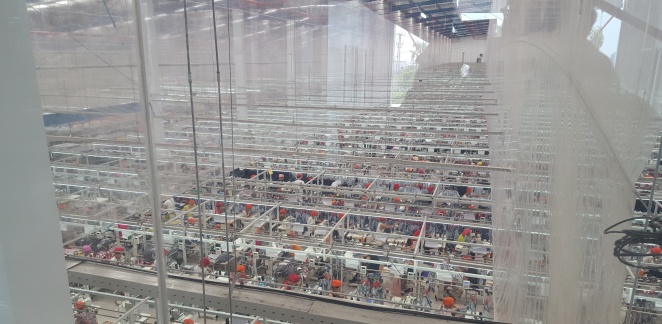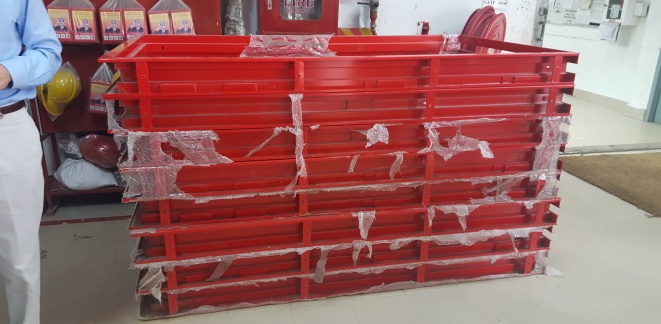NRF helped bring together 26 apparel brands to form the Alliance in response to the 2013 Rana Plaza garment factory collapse in Dhaka that killed more than 1,100 people and injured more than 2,500. Learn more.
NRF Senior Vice President David French and I spent the final weeks of summer witnessing JCPenney’s global supply chain in action. The multi-country tour included visits to factories, facilities, testing labs and ports in Hong Kong, China, Vietnam and Bangladesh. It provided an incredible perspective of the complexities retailers face when sourcing abroad — from testing and certification to ensuring the safety of workers and factories. The experience enabled us to see the many accomplishments by the Alliance for Bangladesh Worker Safety (“Alliance”) firsthand and gave us a deeper understanding of the industry’s rigorous testing, certification and safety protocols through every step of production.
First stop was Hong Kong, beginning with a tour of the Port of Hong Kong and followed by a garment testing lab. These high-tech facilities test products for quality of material (to make sure any merchandise marked “goose feather” is accurate), performance strength (such as a garment’s tear resistance) and yarn quality and counts, among many other quality assurance tests.

This shirt factory in Hanoi employs 12,000 people.
Our visits to garment factories in Vietnam’s Hanoi and Ho Chi Minh City showed these were also well-developed, bustling cities. We focused much of our conversation on the expected growth in exports that will come with the Trans-Pacific Partnership, and whether the Vietnamese ports and electricity infrastructure will be able to handle the rise in activity. It was an amazing experience to see factories in all these countries for ourselves, especially in Bangladesh.
In the two years since the Rana Plaza building collapse in 2013, the Alliance and the Accord on Fire and Worker Safety in Bangladesh have helped implement positive change to factory procedures in Bangladesh. All of the Alliance’s 662 active factories — up from 587 member factories last year — have been audited under Alliance processes to ensure structural integrity and fire and electrical safety of buildings, and that workers are being properly trained. According to the Alliance’s second annual report, 93 percent of the 1.2 million estimated workers in Alliance factories are now trained in fire safety. In addition to collaborating on the inspection and remediation of shared factories, the Alliance and the Accord came together to press the government of Bangladesh to release long-overdue regulations to implement the amendments to the Bangladesh Labor Act.
More than 500 of the 662 factories used by member companies have received the first of two major safety inspections conducted by the Alliance to create a safer environment for garment workers.
Factories have completed between 20 and 80 percent of repairs and six have passed final inspection.
The Alliance has worked with the International Finance Corporation to provide $50 million in affordable, long-term loans to factory owners and another $18 million in assistance from the U.S. Agency for International Development for upgrades to factories that might not be eligible for the IFC program.
(via Alliance for Bangladesh Worker Safety Second Annual Report, September 2015)
The Alliance is a five-year binding agreement among its members to ensure that its factories have been audited for structural, fire and electrical safety. The factories are now in the remediation process to address any issues that have arisen during the audits. Some corrections will take time, but meaningful change continues as the commitment to ensure worker and building safety remains strong.
The ready-made garment sector has provided the Bangladeshi people, especially women, with economic security and opportunities for upward mobility. Heading into year three, it is important to transition this work to the Bangladeshi government and all stakeholders to ensure positive change continues for factories and workers. The Alliance is committed to creating permanent and sustainable workplace safety conditions that can be maintained by all stakeholders going forward.

New fire doors being installed in a factory in Bangladesh.